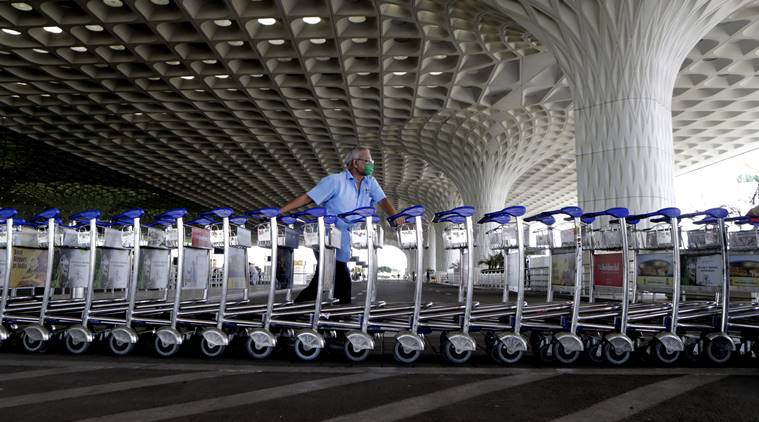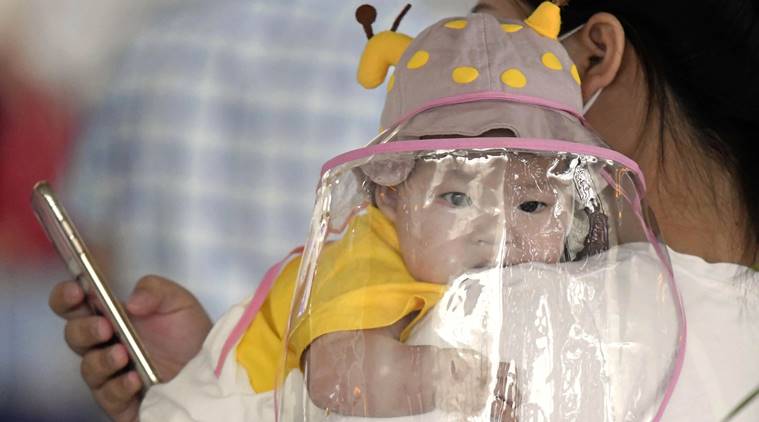
The Indian Express
Explained: The state of international air travel in India, and the world
The aviation sector has been among the worst-hit during the coronavirus pandemic. Here is a look at measures being taken by countries with regard to air travel.
by Explained DeskThe aviation sector has been among the worst-hit during the coronavirus pandemic. However, while easing lockdowns, several countries have resumed air travel but with restrictions to curb the spread of the virus.
India is yet to resume international flights, but has already released guidelines for passengers arriving in the country from abroad. Union Civil Aviation Minister Hardeep Singh Puri recently said it could be before August. “We will try to start a good percentage of international passenger flights before August,” he told reporters last Saturday.
Other than India, countries with complete air travel restrictions include Myanmar, Thailand, Laos, Kazakhstan, Pakistan, Sri Lanka, Saudi Arabia, Poland, Ukraine and Argentina, among others.

Here is a look at measures being taken by countries with regard to air travel.
Air travel considerations in the European Union and the UK
According to the European Center for Disease Prevention and Control (ECDC), current evidence including that acquired in the beginning of the pandemic in Europe indicates that entry screening procedures at airports are “ineffective” in preventing virus introduction. ECDC recommends that emphasis should be on discouraging symptomatic individuals from travelling. Some of the preventive measures that can be taken include health questionnaires, temperature screening and immunity certificates.
Further, the recommended physical distance onboard different modes of transport is between 1.5-2 metres, which can be maintained by leaving an empty seat in between passengers. “When physical distancing cannot be guaranteed on conveyances, the use of a face mask by all passengers is strongly advised. This approach can reduce the release of potential infectious droplets by pre-symptomatic or asymptomatic passengers,” it says.
In Europe, Easyjet is expected to resume flights from 22 airports on the continent from June 15 onward and Spain will stop quarantining arrivals from July 1. As of now, only passengers from countries including Italy, Greece, Finland, France and Germany can enter Spain. The BBC reported that Easyjet will run only one international flight from the UK, from Gatwick to Nice in France. Other than Easyjet, Ryanair will be resuming 40 per cent of its flights from July 1 in over 80 airports across Europe. Further, in the UK, anyone arriving by any mode of transport will be required to undergo a two-week quarantine period starting June 8.

Further, in France, passengers arriving from non-Schengen member states are not allowed to enter unless they are French nationals or spouses or children of French nationals. In Ireland, passengers are required to self-quarantine for a period of 14 days and complete a Public Health Passenger Locator Form.
International arrivals in the US, Canada, China, Australia etc
US: The US has disallowed the entry of travellers from Iran, China, the European Schengen Area, the UK, Ireland and Brazil unless they are citizens or individuals who meet specified exceptions. Travellers from other countries are required to stay home for 14 days voluntarily and monitor their own health.
Canada: Passengers are not allowed to enter the country unless they are arriving from the US or are Canadian nationals. The list also includes permanent residents, their immediate family members, diplomats, seasonal agricultural workers and caregivers, among others. International students with a valid study permit can also enter.
China: Entry of foreign nationals into mainland China has been suspended since March 28. However, foreign nationals entering the country for necessary economic, trade, technological or scientific activities are allowed to enter. Further, all passengers arriving in Beijing are subject to a PCR test and 14 days quarantine. The Nikkei Asian Review reported that the latest schedules released by domestic airlines in China show little increase in international service. Air China, for instance, has added only two international routes, from Beijing to Manila and Madrid in June. Further, foreign carriers wanting to fly into China have submitted their applications to Chinese regulators but have not heard back.

Australia: Foreign nationals are not allowed entry into Australia as per a notification issued on May 20. This does not apply to Australian nationals, nationals of New Zealand residing in Australia and some other exceptions. Passengers and airline crew are required to self-isolate for a period of 14 days. However, airline crew with the PPE are not required to self-isolate.
Brazil: Passengers are not allowed to enter Brazil unless they are transiting and remain within the international area of the airport, are nationals or residents of Brazil or have been authorised by the government.
Mexico: According to information compiled by the International Air Traffic Association (IATA), no regulations related to COVID-19 have been implemented in the country.

South Africa: Flights to the country are suspended unless authorised by the ministry of transport. South African nationals brought back into the country will need to quarantine for a period of 21 days.
Guidelines for international arrivals in India
Indian nationals from abroad can only enter the country through flights arranged by the Ministry of Civil Aviation through the Vande Bharat Mission. Passengers with an Overseas Citizen of India (OCI) card can enter provided they are coming to the country due to an emergency, such as a death in the family. University students whose parents are Indian nationals living in India can also enter.
While the health ministry has released guidelines for international arrivals, states can develop their own protocol regarding quarantine and isolation of passengers. The ministry’s guidelines include the following:
i. Before boarding, all travellers shall give an undertaking that they would undergo mandatory quarantine for 14 days – 7 days paid institutional quarantine at their own cost, followed by 7 days isolation at home with self-monitoring of health.
ii. Only for exceptional and compelling reasons such as cases of human distress, pregnancy, death in family, serious illness and parent(s) accompanied by children below 10 years, as assessed by the receiving states, home quarantine may be permitted for 14 days. Use of Aarogya Setu app shall be mandatory in such cases.
iii. Dos and Don’ts shall be provided along with ticket to the travelers by the agencies concerned.
iv. All passengers shall be advised to download Arogya Setu app on their mobile devices.
v. At the time of boarding the flight/ ship, only asymptomatic travelers will be allowed to board after thermal screening.
vi. Passengers arriving through the land borders will also have to undergo the same protocol as above, and only those who are asymptomatic will be enabled to cross the border into India.
vii. Self-declaration form in duplicate shall be filled by the person in the flight/ship and a copy of the same will be given to Health and Immigration officials present at the airport/ seaport/ Iandport. The form may also be made available on Aarogya Setu app.
viii. Suitable precautionary measures such as environmental sanitation and disinfection shall be ensured at the airports as well as within the flights.
ix. During boarding and at the airports, all possible measures to ensure social distancing to be ensured.
x. Suitable announcement about COVID-19 including precautionary measures to be followed shall be made at airports/port and in flights/ships and during transit.
xi. While on board the flight/ ship, required precautions such as wearing of masks, environmental hygiene, respiratory hygiene, hand hygiene etc. are to be observed by airline/ ship staff, crew and all passengers.
xii. On arrival, thermal screening would be carried out in respect of all the passengers by the Health officials present at the airport/ seaport/ Iandport. xiii. The passengers found to be symptomatic during screening
xiii. The passengers found to be symptomatic during screening shall be immediately isolated and taken to medical facility as per health protocol.
xiv. The remaining passengers shall be taken to suitable institutional quarantine facilities, to be arranged by the respective State/ UT Governments.
xv. These passengers shall be kept under institutional quarantine for a minimum period of 7 days. They shall be tested as per ICMR. If they test positive, they shall be assessed clinically.
a. If they are assessed as mild cases, they will be allowed home isolation or isolated in the Covid Care Centre (both public & private facilities) as appropriate.
b. Those having moderate or severe symptoms will be admitted to dedicated COVID Health facilities and managed accordingly. If found negative, they shall be advised to further isolate themselves at home and self-monitor their health for 7 days.
xvi. In case, any symptoms develop they shall inform the district surveillance officer or the state/national call center (1075).